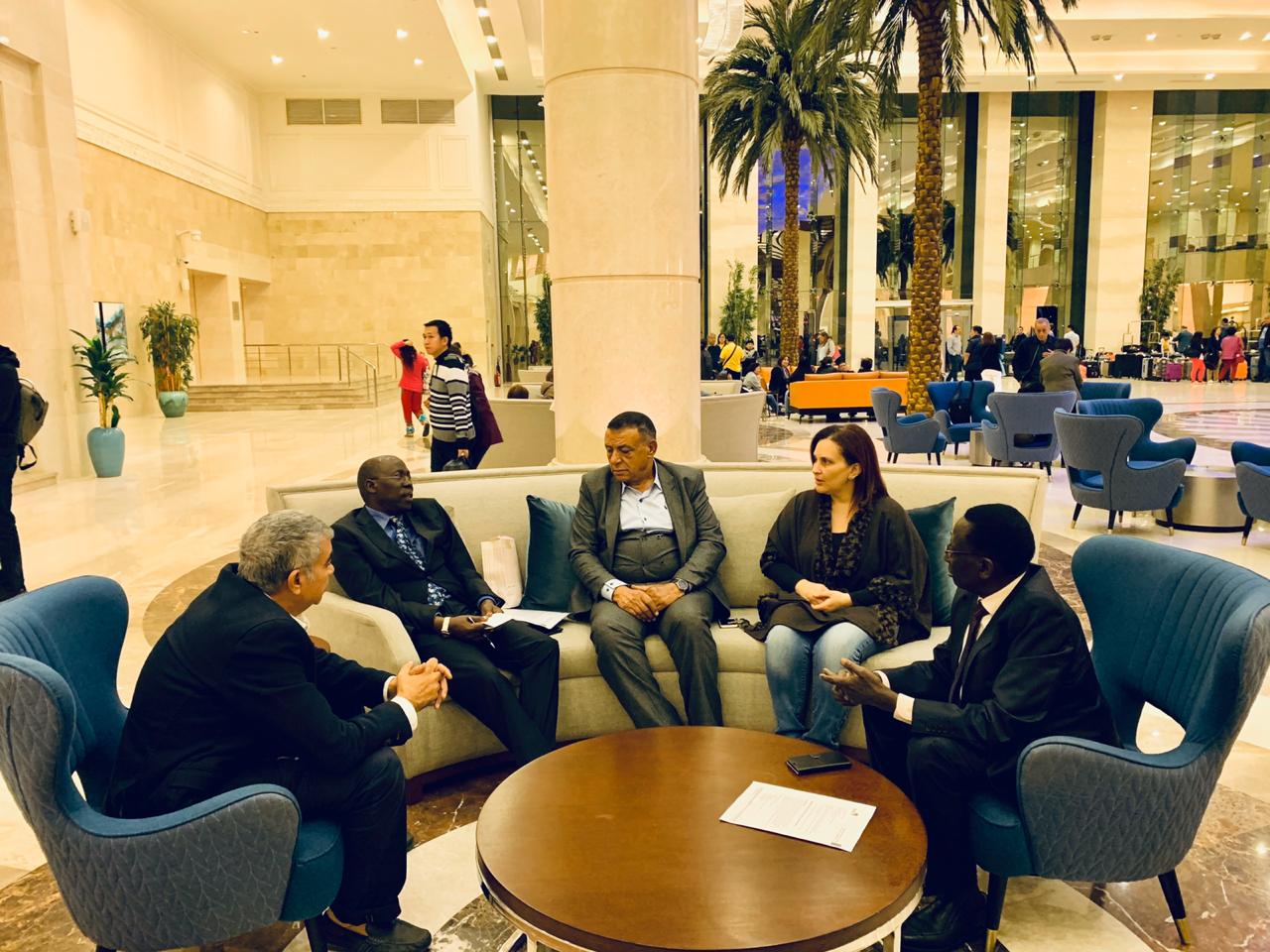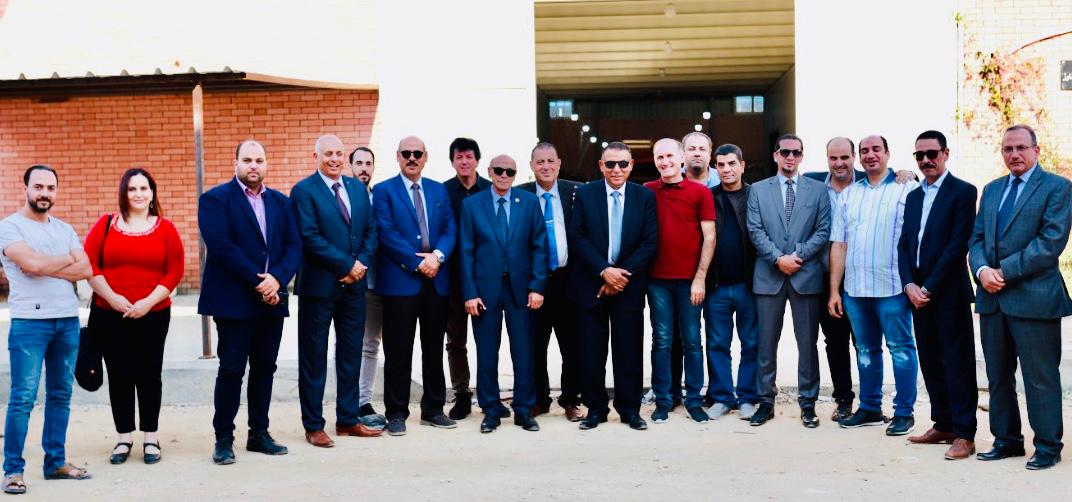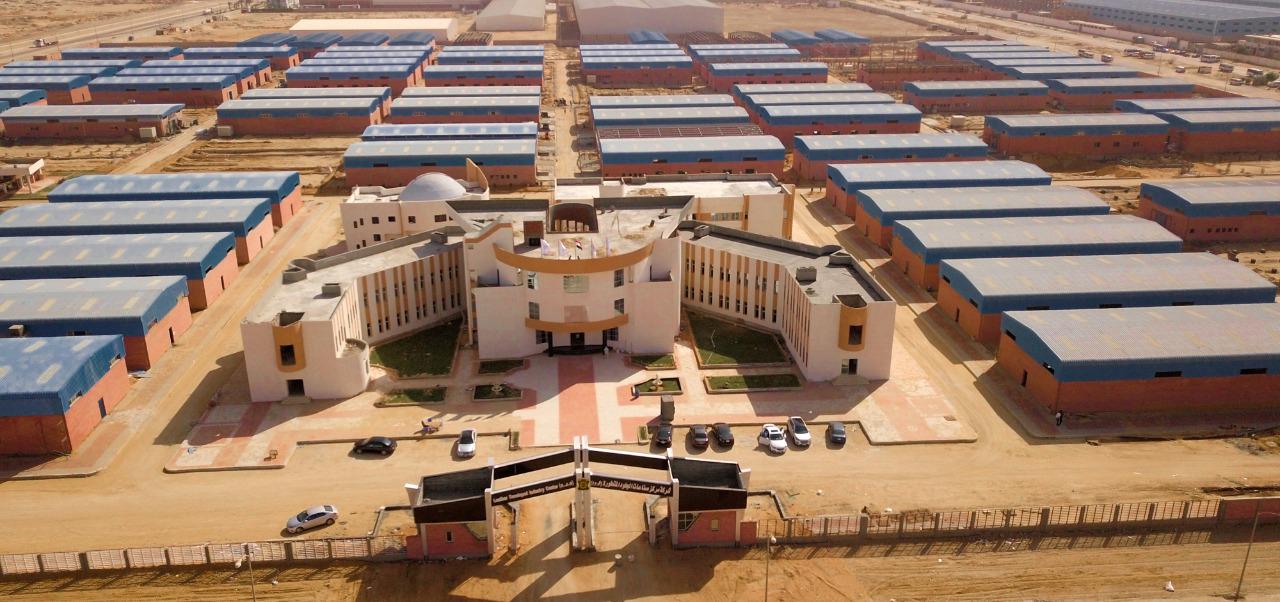CAIRO - 27 November 2019: Egypt recently held the Investment for Africa 2019 Forum, which was organized by the Ministry of Investment and International Cooperation, under the auspices of Egypt’s President Abdel Fattah El Sisi at the New Administrative Capital.
High-level government officials from around the world, and especially from Africa participated in this important forum. Uganda’s official delegation was headed by the Honorable Dr. Kasirivu Atwooki, Uganda’s Minister of State for Economic Monitoring in President Museveni’s Office.

On the sidelines of the Forum, A high-level Ugandan government delegation headed by Atwooki, visited the Advanced Leather Industry Center (ALIC) in 10th of Ramadan. ALIC hosts the largest number of leather manufacturing facilities in Egypt with over 113 factories for manufacturing shoes, bags, and other leather products. ALIC also has a dual education program vocational school, a mall, and several other services for the residents.
The Ugandan delegation was very impressed by the project and its success to bring together such a large number of leather manufacturers in one place. They were also impressed by the mall and the dual education vocational school, which began running this year and was established to train a new generation of skilled workers for the footwear and leather industry sector.
The school, which is fully accredited by the Ministry of Education and Vocational Education, has the total capacity to accommodate 1,200 students, making it the largest ever in Egypt, Africa, and the Arab World.

The school offers a 3-year full-time dual education system program combining practical skills in the classroom as well as on-the-job training and apprenticeship which equips students with the leather manufacturing skills required to succeed in the industry in the production of such items as footwear and other leather products.
The students train on state-of-the-art machines, some of which were made in Egypt by one of the Ministry of Military Production’s factories and the classrooms are equipped with state-of-the-art educational equipment.
Once those students graduate from the 3-year program, they will be immediately employable and around 1200 skilled workers will be ready to join the workforce annually. Students train on the latest leather manufacturing technology, which makes them even more qualified for the labor market. Students also receive a monthly allowance, a free meal & uniform and free round-trip transportation to school.
ALIC prides itself on offering its residents the much-needed services including a retail mall with showrooms for factory owners to display their finished products, two Mosques, two daycare centers with a playground for laborers with young children, a medical center, a restaurant, 24-hour security.
Developing Uganda’s leather industry and moving towards industrialization is a priority for Uganda’s government and organizations like the Uganda Leather and Allied Industries Association (ULAIA) are keen to work towards the development of the country’s leather industry until they are able to manufacture their own finished products for local and international retail.
According to ULAIA’s Chairman, Abdul Hakim Sekandi, “More than 95 percent of processed hides and skins are exported as partly processed leather (wet blue) but could upgrade to crust and finished leather if technology and investment are increased through partnerships.”
Uganda has only a handful of large tanneries capable of processing close to 10,000 hides and 47,000 skins per day. Those tanneries are operating at only 60 to 70% capacity as a result of financial constraints, and machine breakdowns.
President Abdel Fattah El Sisi has emphasized the importance of developing those strategic industries that have a great impact on Egypt’s Economy including the Leather industry. The Minister of Trade & Industry, Dr. Amr Nassar has identified the development of the leather industry and the promotion of Egyptian exports as a priority for the Ministry. According to the Industrial Modernisation Centre (IMC), the leather industry is considered to be the 5th largest sector in Egypt as it offers over 270,000 direct employment opportunities.
Yehya Zalat, Vice president of the Arab Leather Federation and ALIC’s Chairman met with the Ugandan delegation during a constructive meeting which included Minister Atwooki, Sam Male, Uganda’s Ambassador to Egypt and Nancy Abdelhadi, ALIC City’s government relations consultant and the first Egyptian Goodwill Ambassador for Uganda in Egypt, at one of the conference hotels in New Cairo.
Zalat shared his experience and efforts toward the development of the leather industry in Egypt.
They also discussed the importance of the development of the leather industry in Uganda and possible opportunities for collaboration on establishing a similar project in Uganda which would involve several stages including having an automatic slaughterhouse, upgraded tanneries to ensure that the skins are not damaged in the process and then finally to develop a similar Leather Manufacturing city, to help Uganda be on their way to manufacturing their own leather products for local demand as well as for export.
Sami Naguib, Head of Leather, Textile and Garments Sectors at IMC, stressed the importance of this visit as it is an important step on the right path towards African industrial integration. Earlier this year, a delegation from the Ministry of Trade and Industry and IMC visited Uganda to present the concept of industrial integration among African nations which includes taking advantage of the value chains and raw materials inside the continent which are usually exported abroad, with the premise that it is better to work towards increasing the added value of these materials within the continent.
Subsequent visits to Uganda are in the works in order to assess the industry in priority sectors to work on its development with the help of the IMC. This is in line with the recommendations made during the 'Made in Africa' Workshop that was held in Cairo on November 20-21, 2019 which concluded with the importance of achieving comprehensive and sustainable integration among African countries through:
1. Utilization of the continent’s resources and strengthening regional value chains
2- Industrial integration among African countries
3. Sustainable financial inclusion
4. Promotion of the growth of intra-African trade facilitation
The visit of the high-level Ugandan delegation to ALIC City in the 10th of Ramadan industrial zone came as part of its participation in the Africa 2019 conference was a clear sign of their interest to collaborate with Egypt on the development of the leather industry in Uganda and in Africa as a whole.




Comments
Leave a Comment